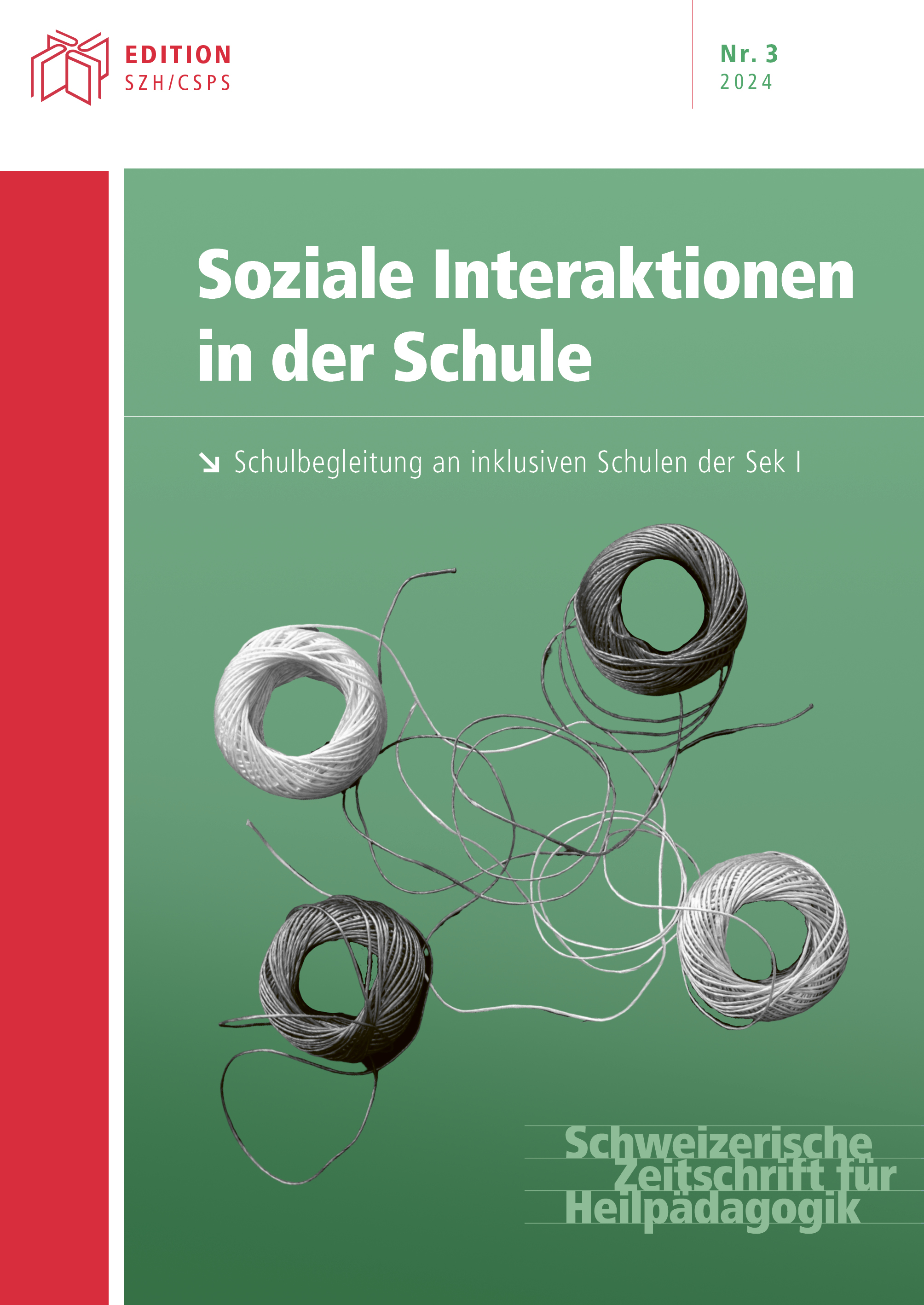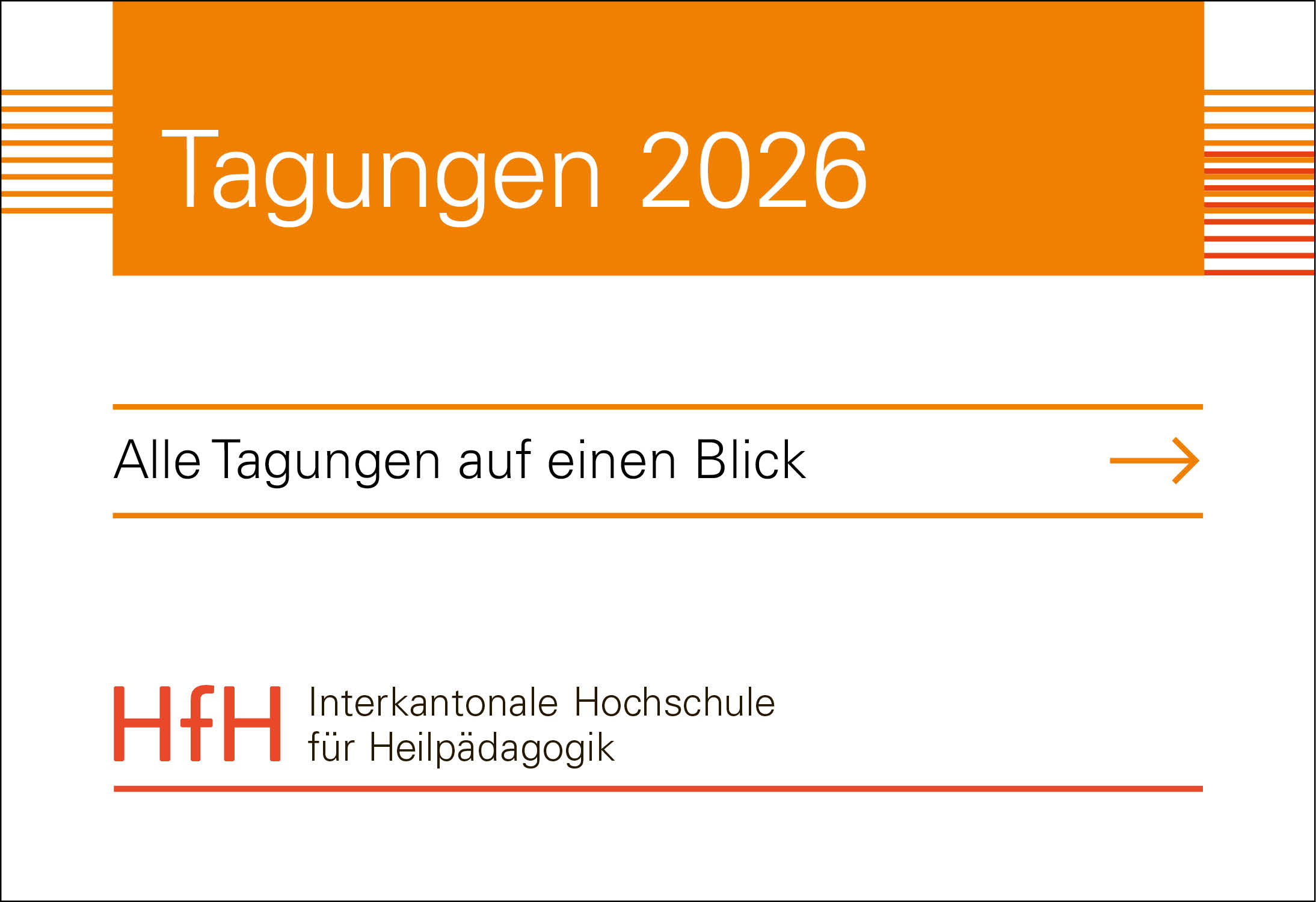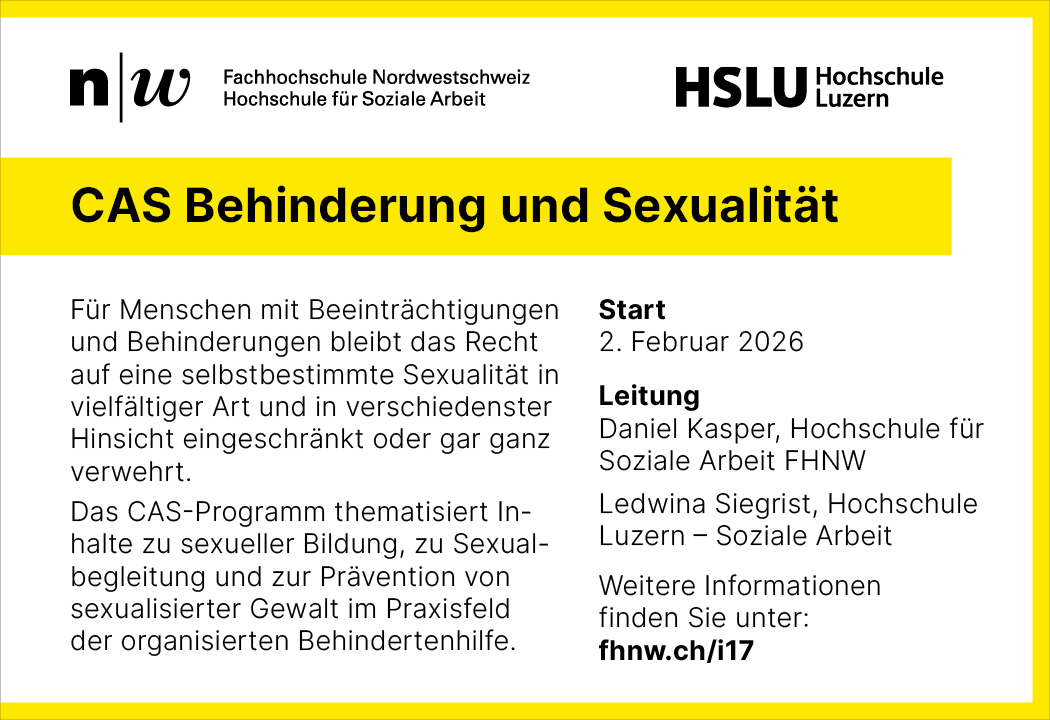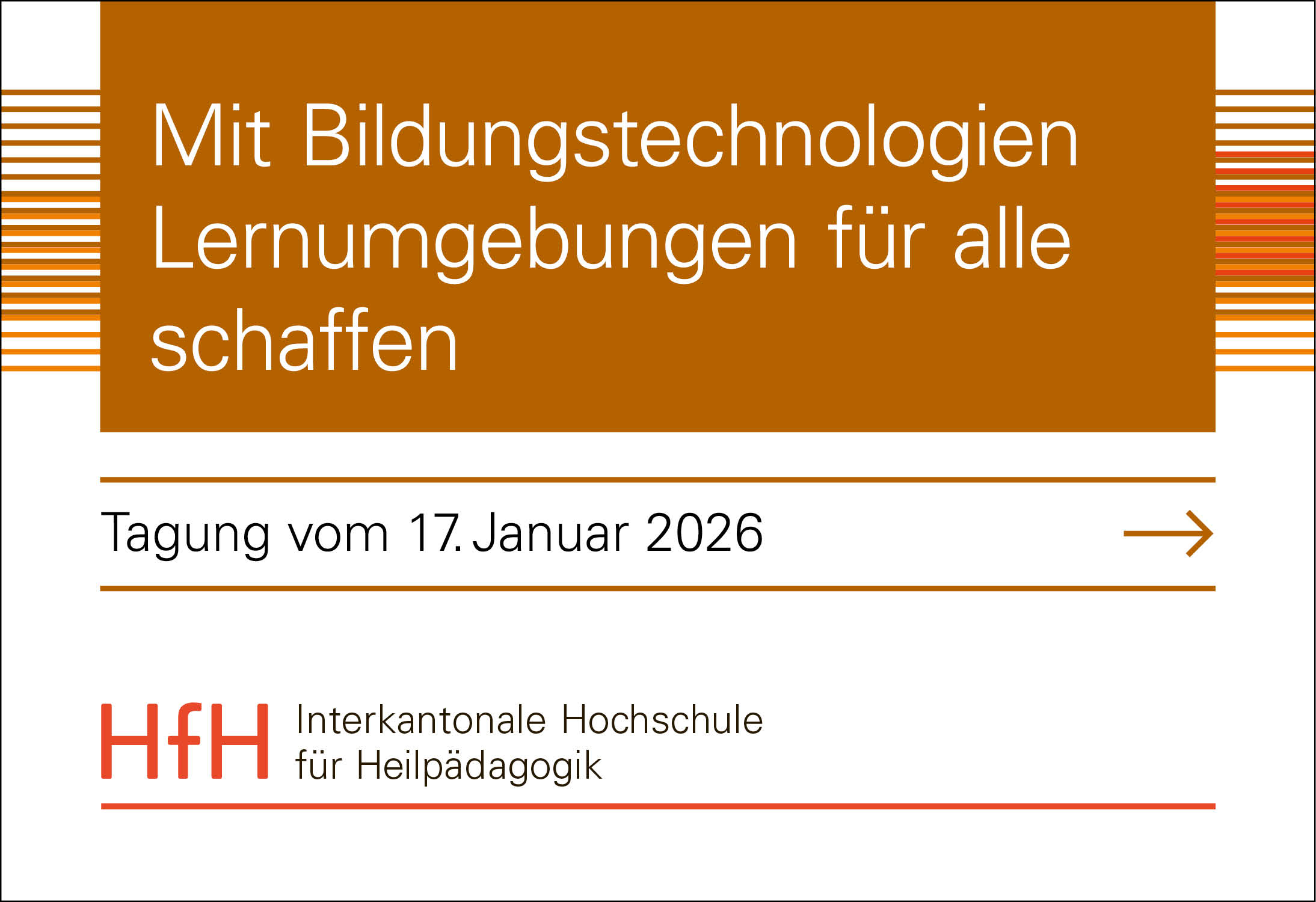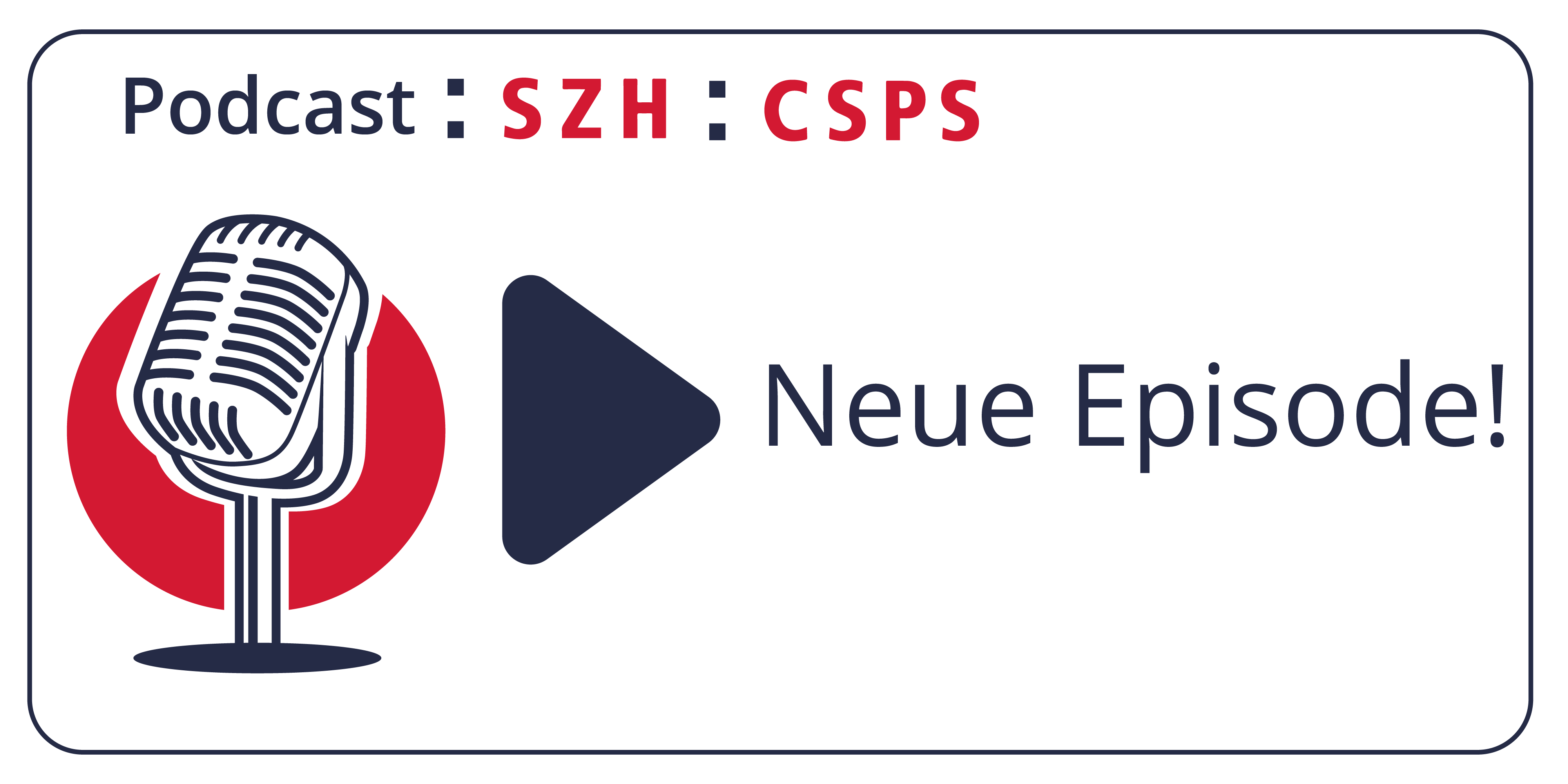Zur Qualität pädagogischer Interaktionen im Unterricht
Eine neuartige theoretische Konzeptualisierung und eine innovative 2*3*3-Systematik
DOI :
https://doi.org/10.57161/z2024-03-01Mots-clés :
communication, conceptualisation, interaction pédagogique, perturbation de l’enseignement, qualité de l’enseignement, relation maitre-élèveRésumé
Cet article présente une modélisation des interactions scolaires et une approche systématique 2*3*3 servant à classifier les interactions scolaires. Cette conceptualisation englobe le comportement interdépendant d’enseignement et d’apprentissage des actrices et acteurs, ainsi que leur expérience subjective – y compris la perception du comportement des autres. L’étude longitudinale INTAKT est aussi présenté. Cette dernière, grâce à des méthodes et des perspectives multiples, étudie le comportement et le vécu du corps enseignant et des élèves de 100 classes de l’école secondaire.
Références
Bänziger, T. (2016). Accuracy of judging emotions. In J. A. Hall, M. Schmid Mast & T. V. West (Eds.), The social psychology of perceiving others accurately (pp. 23–51). Cambridge University Press. https://doi.org/10.1017/CBO9781316181959.002
Blömeke, S., Gustafsson, J.-E. & Shavelson, R. J. (2015). Beyond dichotomies. Zeitschrift für Psychologie, 223 (1), 3–13.
Clausen, M. (2002). Unterrichtsqualität: Eine Frage der Perspektive? Waxmann.
Dicke, T., Parker, P. D., Marsh, H. W., Kunter, M., Schmeck, A. & Leutner, D. (2014). Self-efficacy in classroom management, classroom disturbances, and emotional exhaustion. Journal of Educational Psychology, 106 (2), 569–583. https://doi.org/10.1037/a0035504
Dicke, T., Stebner, F., Linninger, C., Kunter, M. & Leutner, D. (2018). A Longitudinal Study of Teachers’ Occupational Well-Being: Applying the Job Demands-Resources Model. Journal of Occupational Health Psychology, 23, 262–277.
Doyle, W. (2006). Ecological approaches to classroom management. In C. Evertson & C. Weinstein (Eds.), Handbook of classroom management: Research, practice and contemporary issues (pp. 97–125). Erlbaum.
Eckstein, B. (2018). Gestörter Unterricht. Wie Lehrpersonen, Schülerinnen und Schüler Unterrichtsstörungen wahrnehmen, deuten, bewerten und beschreiben. Kumulative Dissertation. Universität Zürich. https://doi.org/10.5167/uzh-158353
Eckstein, B. (2019). Production and Perception of Classroom Disturbances. Frontline Learning Research, 7 (2), 1–22. https://doi.org/10.14786/flr.v7i2.411
Eckstein, B., Grob, U. & Reusser, K. (2016). Unterrichtliche Devianz und subjektives Störungsempfinden. Empirische Pädagogik, 30 (1), 113–129.
Eckstein, B., Wettstein, A., Grob, U. & Fauth, B. (in Begutachtung). The Quality of Pedagogical Interactions in the Classroom.
Fend, H. (2009). Neue Theorie der Schule. VS Verlag.
Hofstetter, A. (2022). Unterrichtsstörungen in unterschiedlichen Sozial- und Aktionsformen. Universität Zürich. https://doi.org/10.5167/uzh-218927
Klieme, E. (2022). Unterrichtsqualität. In M. Harring, C. Rohlfs & M. Gläser-Zikuda (Hrsg.), Handbuch Schulpädagogik (S. 411–426). Waxmann.
Kokkinos, C. M. (2007). Job stressors, personality and burnout in primary school teachers. British Journal of Educational Psychology, 77, 229–243.
Marusic, C. (2023). Handlungsorientierungen von Lehrpersonen im Umgang mit Unterrichtsstörungen. Springer. https://doi.org/10.1007/978-3-658-41700-0
Montuoro, P. & Lewis, R. (2015). Student perceptions of misbehavior and classroom management. In E. T. Emmer & E. J. Sabornie (Eds.), Handbook of classroom management (2nd ed.) (pp. 344–362). Routledge.
Müller, C. M. & Hofmann, V. (2014). Does being assigned to a low school track negatively affect psychological adjustment? A longitudinal study in the first year of secondary school. School Effectiveness and School Improvement: An International Journal of Research, Policy and Practice, 27 (2), 95–115. https://doi.org/10.1080/09243453.2014.980277
Nickel, H. (1985). Die Lehrer-Schüler-Beziehung aus der Sicht neuerer Forschungsergebnisse. In R. Bierman (Hrsg.), Interaktion-Unterricht-Schule (S. 254–280). Wissenschaftliche Buchgesellschaft.
Perrez, M., Huber, G. L. & Geißler, K. A. (2001). Psychologie der pädagogischen Interaktion. In A. Krapp & B. Weidenmann (Hrsg.), Pädagogische Psychologie (S. 357–414). Beltz.
Pfitzner, M. & Schoppek, W. (2000). Gemeinsamkeiten und Diskrepanzen in der Bewertung von Unterrichtsstörungen durch Lehrer und Schüler. Unterrichtswissenschaft, 28 (4), 350–378.
Pianta, R. C. & Hamre, B. K. (2009). Conceptualization, Measurement, and Improvement of Classroom Processes. Educational Researcher, 38 (2), 109–119.
Rothland, M., Cramer, C. & Terhart, E. (2018). Forschung zum Lehrerberuf und zur Lehrerbildung. In R. Tippelt & B. Schmidt-Hertha (Hrsg.), Handbuch Bildungsforschung (S. 1011–1034). Springer. https://doi.org/10.1007/978-3-531-19981-8_44
Schmitt, R. (Hrsg.). (2011). Unterricht ist Interaktion! Institut für Deutsche Sprache.
Schönbächler, M.-T., Makarova, E., Herzog, W., Altin, Ö., Känel, S., Lehmann, V. & Milojevic, S. (2009). Klassenmanagement und kulturelle Heterogenität: Ergebnisse 2. Universität Bern.
Schweer, M. K., Thies, B. & Lachner, R. P. (2017). Soziale Wahrnehmungsprozesse und unterrichtliches Handeln. In M. K. Schweer (Hrsg.), Lehrer-Schüler-Interaktion (S. 121–145). Springer.
Stein, R. & Stein, A. (2014). Unterricht bei Verhaltensstörungen. Klinkhardt.
Strack, S. & Horowitz, L. M. (2011). Introduction. In L. M. Horowitz & S. Strack (Eds.), Handbook of interpersonal psychology (pp. 1–13). Wiley.
Tomasello, M., Carpenter, M., Call, J., Behne, T. & Moll, H. (2005). Understanding and sharing intentions. Behavioral and Brain Sciences, 28 (5), 675–691. https://doi.org/10.1017/S0140525X05000129
Vieluf, S., Praetorius, A.-K., Rakoczy, K., Kleinknecht, M. & Pietsch, M. (2020). Angebots-Nutzungsmodelle der Wirkweise des Unterrichts. Zeitschrift für Pädagogik, 66. Beiheft, 63–80.
Wettstein, A. (2012). A conceptual frame model for the analysis of aggression in social interactions. Journal of Social, Evolutionary and Cultural Psychology, 6 (2), 141–157.
Wettstein, A. (2013). Die Wahrnehmung sozialer Prozesse im Unterricht. Schweizerische Zeitschrift für Heilpädagogik, 7–8, 5–13.
Wettstein, A., Ramseier, E., Scherzinger, M. & Gasser, L. (2016). Unterrichtsstörungen aus Lehrer- und Schülersicht. Zeitschrift für Entwicklungspsychologie und Pädagogische Psychologie, 48 (4), 171–183. https://doi.org/10.1026/0049-8637/a000159
Wettstein, A. & Scherzinger, M. (2022). Unterrichtsstörungen verstehen und wirksam vorbeugen (2. Aufl.). Kohlhammer.
Wettstein, A., Schneider, S., grosse Holtforth, M. & La Marca, R. (2021). Teacher Stress. A Psychobiological Approach to Stressful Interactions in the Classroom. Frontiers in Education, 6, 1–6. https://doi.org/10.3389/feduc.2021.681258
Téléchargements
Publiée
Comment citer
Numéro
Rubrique
Licence
© Boris Eckstein, Alexander Wettstein 2024

Ce travail est disponible sous la licence Creative Commons Attribution 4.0 International .

